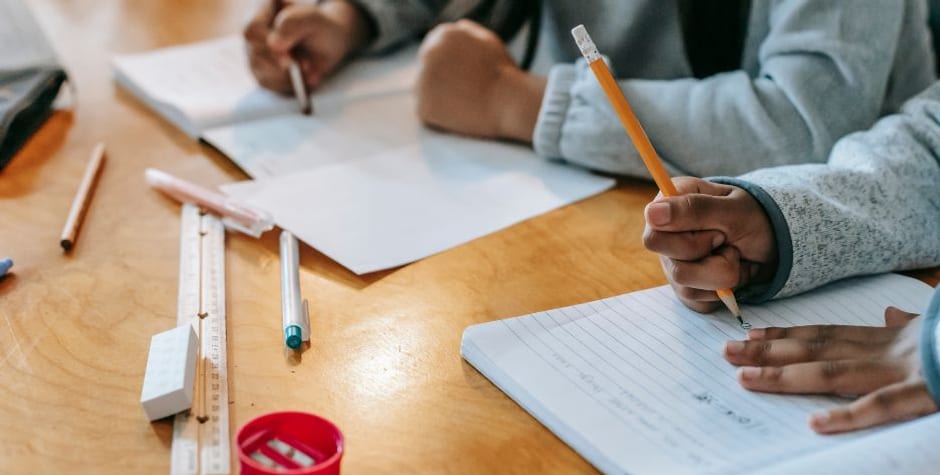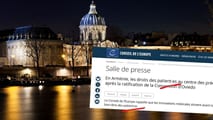

Freedom of Education in France: A Fundamental Right Infringed
Freedom of Education in France: A Fundamental Right Infringed
Education is a right for children, but also a freedom for parents. A freedom to educate their children or to enroll them in a school that provides an education in line with their convictions. On this International Day of Education, we note that this right is no longer properly guaranteed in France.
This is an automatic translation that will be reviewed.
Do French public schools still guarantee the right to education? With the drop in general standards observed by recurring studies, the increase in violence and harassment, teacher absenteeism and ideological content that is sometimes far removed from fundamental knowledge, parents are mostly dissatisfied with the level of instruction and learning conditions. Yet French parents have few alternatives.
The three alternatives to public schooling
Private education under contract with the State is the first alternative for around 20% of parents. While the overall standard of education remains better, it is clear that over the years it has become very difficult for private schools to maintain their identity and offer a different education to that of the national public education system. Funding is conditional on application of the same curriculum as the public sector, and pressure for greater social diversity is gradually erasing the differences between public and private schools. Some parents don't see the difference with public schools, and the extra cost and limited choice prevent others from enrolling their children in these establishments.
This leaves two alternatives for parents dissatisfied with the education under contract with the State: non-contracted schools or home schooling. The number of out-of-contract schools is on the increase, but remains relatively marginal, with just under 2,500 establishments in France. Pedagogical freedom, multilingualism and religion are clearly more present, making these establishments very attractive, provided you're not too far away and, above all, have the financial resources, as these schools are very expensive - generally several thousand euros a year.
Family instruction, also known as home schooling, is the last alternative, the most economical and the most flexible for parents and children. While it the best in terms of pedagogical freedom and allows for the best possible adaptation to children's needs, it does require a high degree of availability and is therefore often difficult to reconcile with professional life.
The use of these three alternatives to public schooling represents a fundamental freedom. Parents are free to educate their children in accordance with their own convictions, and to choose schools other than those run by the public authorities, provided they meet minimum standards.
This is guaranteed by three major international conventions: the International Covenant on Civil and Political Rights, Article 18; the International Covenant on Economic, Social and Cultural Rights, Article 13; and the 1st Protocol to the European Convention on Human Rights, Article 2.
National Education against private initiatives
Yet instead of guaranteeing this fundamental right, and supporting private initiative by families, the French education system is making life difficult for those who challenge its educational monopoly. This is a serious attack on the right to education, because the three alternatives to public schooling have better academic results on average, and provide a systematically more serene school environment.
The strongest blow was probably struck against home schooling. In 2020, Emmanuel Macron simply wanted to ban it. Faced with considerable resistance from families unfairly targeted by accusations of “separatism,” a complex and tedious system as French administration has the secret of was implemented.
Since 2022, parents have had to apply each year and demonstrate that they meet one of the four legal criteria to obtain the right to homeschool. Whether the reason is the child's disability, homelessness, high-level sporting activity or a fundamental choice on the part of the parents, the French education system largely rejects applications, and only a few motivated (and lucky) families manage to win their case before the administrative courts, which refuse to apply the international conventions cited.
The number of children educated in families has plummeted in three years, from 72,369 to 30,644, at a cost to the State of over 300 million euros. This borders on the absurd when we see some parents of disabled children practicing home schooling, not because they have a strong desire to do so, but simply because the local public establishment has refused to accept the disabled child.
The situation is hardly any better in the non-contractual sector, where parents face a thousand administrative hurdles to open a school. Annual inspections are severe, often malicious, and national education inspectors have requirements in terms of standards and maintenance of premises which, if applied to all public establishments, would close more than one.
Lastly, the suspension of the principal of the Immaculée Conception school in Pau, which has itself been suspended for the time being, is an emblematic example of the pressure to which the private sector is subjected. This principal of one of the region's best middle and high schools has been suspended for “breach of secularity”, even though he runs a Catholic school, for allegedly organizing a conference with a bishop and allowing confessions during school hours. Yet the denominational nature of the school is precisely what international law guarantees: yes, parents have the right to give their children a religious education in accordance with their convictions, and to demand that a Catholic school offer Catholic activities to pupils, in addition to the common curriculum.
No support from the European Court of Human Rights
The French are thus obliged to suffer the many abuses of the national education system, prevented or limited in their means of reaction. Can they expect support from international bodies? In principle, when a fundamental right is infringed by a state, international bodies are supposed to be able to issue a formal request to the state to amend its legislation in order to ensure that the infringed fundamental right is respected.
In this respect, the European Court of Human Rights in Strasbourg has nothing to offer. While the European Convention is particularly clear in requiring the State to respect “the right of parents to ensure such education and teaching in conformity with their religious and philosophical convictions”, the Court has systematically rejected the appeals of parents deprived of this freedom. The Court has consistently upheld the right of states to prohibit home schooling, and has recently rejected several applications. To these parents deprived of the right to homeschool by the new restrictions put in place by the Anti-Separatism Act of 2021, the Court responds that “the facts complained of reveal no appearance of a violation of rights and freedoms”. This is striking. The State abrogates a freedom without valid justification and materially prevents parents from educating their children in accordance with their convictions, and the ECHR sees no violation of rights or freedoms.
Only time will tell whether the UN's guarantors of the International Covenants will be more favorable to freedom of education. Up to now, when it comes to the right to education, the challenge at global level has been to encourage States to invest in the education of their young people. Not to curb their educational zeal for encroaching on parents' rights.












